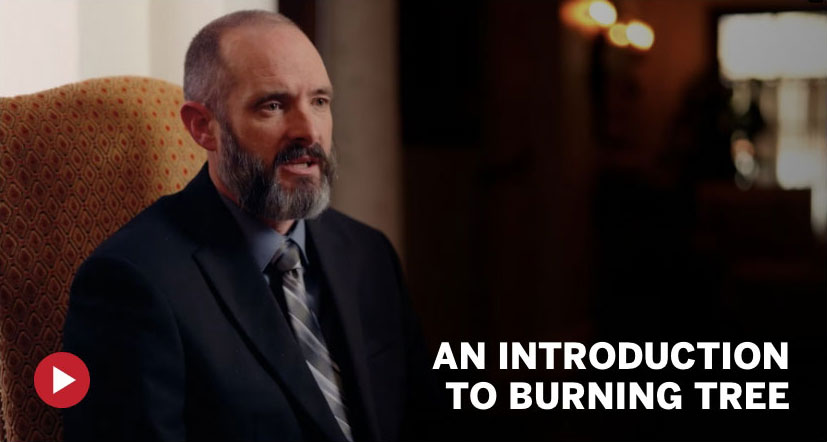Long-Term Addiction Treatment Referrals for Estate & Probate Attorneys
Probate or estate attorneys, while primarily concerned with the legal aspects of estate planning, administration, and the probate process, may find themselves in a position where referring a person to long-term, chronic addiction treatment is necessary. This could arise under various circumstances, especially when the attorney observes issues that could impact an estate’s management, distribution, or preservation due to a beneficiary’s or executor’s addiction.
Who We Are
Burning Tree Ranch is a specialty program dedicated to the treatment of chronic addiction and mental health. Our program is long-term, progress-based, and highly intensive. Since 1999, we have supported countless referring professionals in delivering ethical, high-quality solutions to the clients and families they represent.
Circumstances for Referral to Long-Term Treatment
Estate Management Issues
When an executor or a key beneficiary struggles with addiction, it might jeopardize their ability to manage estate affairs effectively, prompting the attorney to suggest treatment.
Asset Preservation Concerns
Observing that a beneficiary’s addiction could lead to the rapid depletion or mismanagement of their inheritance, endangering the financial legacy intended for them.
Legal and Financial Responsibilities
Recognizing that an individual's addiction may impede their ability to fulfill legal and financial obligations related to the estate, such as paying debts or taxes or managing investments wisely.
Family Dynamics and Disputes
Addiction can exacerbate family disputes, especially when it comes to the fair distribution of assets. An attorney might suggest treatment to help stabilize family relations and ensure a smoother estate process.
Trust Fund Protections
In cases where trusts are established for minors or young adults, the discovery of substance use issues might prompt a referral to prevent future misuse of funds intended for education, health, and support.
Observations Informing the Need
In these scenarios, a probate or estate attorney may act out of duty to their client and the estate’s beneficiaries to suggest or facilitate a referral to addiction treatment. The goal is to protect the legal and financial interests at stake and support the well-being of the individual and the family involved. While making such a referral might go beyond the traditional scope of their legal duties, it reflects a comprehensive approach to their role as legal advisors concerned with the broader implications of addiction on estate matters.
Behavioral Changes: Noticing significant changes in an individual’s behavior, reliability, or decision-making that could indicate a struggle with addiction.
Financial Irresponsibility: Observing patterns of financial irresponsibility, such as unexplained losses, borrowing against the estate, or selling assets under value, could signal underlying addiction issues.
Physical and Emotional Signs: Recognizing physical or emotional signs of chronic addiction, which might include frequent intoxication, withdrawal symptoms, or erratic emotional states during interactions.
Impact on Estate Planning: Seeing the direct effect of addiction on estate planning efforts, such as an inability to participate meaningfully in planning discussions or make informed decisions.
Concerns from Family Members: Hearing concerns from other family members about the individual’s substance use and its potential impact on the estate or their inheritances.

Navigating Client Relationships: When Estate & Probate Attorneys Encounter Addiction
The responsibility of an estate or probate lawyer to make a recommendation for long-term chronic addiction treatment to a client is not a formal or legal obligation inherent to their role. Instead, it arises from ethical consideration, professional judgment, and a commitment to the client’s and beneficiaries’ best interests.
Referrals are typically motivated by a desire to protect the estate’s interests and support the client’s and beneficiaries’ health and welfare rather than stemming from a direct legal obligation.
Ethical Consideration
While the primary focus of estate or probate lawyers is legal, ensuring the client’s best interests can sometimes extend to personal matters affecting the estate or the well-being of the client and their beneficiaries.
Recommending addiction treatment is part of safeguarding those interests, especially if addiction threatens to undermine the estate’s integrity or the health and safety of those involved.
Professional Judgment
Estate and probate lawyers often take a holistic view of their client’s situation, recognizing that legal, financial, and personal issues are interwoven. When they observe that addiction is impacting an individual’s ability to manage or inherit estate assets responsibly, suggesting treatment can be a prudent step.
The nature of the relationship between the attorney and the client might also inform the attorney’s actions. A lawyer who has a longstanding relationship with a client or family may feel a moral responsibility to advise on matters beyond the strictly legal, including personal health issues like addiction.
Commitment to Client and Beneficiaries’ Interests
Part of an estate or probate lawyer’s role is to help protect the assets within an estate and ensure they are distributed according to the deceased’s wishes. If addiction poses a risk to these objectives, the lawyer might find it appropriate to recommend treatment as a means of mitigating this risk.
Understanding and navigating family dynamics is often part of handling an estate. Suppose addiction is causing conflict or distress that could impact the estate’s administration or disrupt peaceful distributions. The lawyer might suggest treatment options to support harmony and resolution in that case.
Practical Considerations
Estate and probate lawyers must also recognize the limits of their professional role. Making a referral for addiction treatment is sensitive and must be approached with care, respecting client confidentiality and autonomy.
Rather than making direct recommendations, lawyers might provide resources or referrals to addiction treatment professionals, thus offering support without overstepping professional boundaries.

Motivating Treatment Through Financial Incentives: Estate & Probate Strategies
A probate or estate lawyer, as a trusted professional, can play a pivotal role in motivating a client or a beneficiary of an estate to seek and complete treatment for substance use disorder (SUD). Their unique position allows them to leverage legal and financial planning tools to create incentives for treatment, all while serving the best interests of the family and the estate. Here’s how they might incorporate leverage and motivate treatment:
CREATING MOTIVATION FOR TREATMENT
- Conditional Bequests: The lawyer can draft wills or trusts that make certain bequests conditional upon the beneficiary completing a treatment program. For example, the disbursement of assets could be contingent on the beneficiary providing evidence of having completed a specified treatment program.
- Incentive Trusts: An estate lawyer can help set up an incentive trust that releases funds for specific purposes that support recovery, such as paying for treatment costs, securing housing post-treatment, or funding education and job training programs, provided the beneficiary adheres to agreed-upon treatment plans.
- Escrow Arrangements: Similar to conditional bequests, funds or assets could be held in escrow and only released to the beneficiary upon meeting certain milestones related to treatment and recovery, as verified by medical professionals or through certified programs.
Leveraging Legal and Financial Planning
- Guardianships or Conservatorships: In cases where an individual’s capacity to manage their affairs is significantly impaired, the lawyer might suggest establishing a guardianship or conservatorship. While this is a more drastic measure, it can protect the individual and the estate, with the guardian or conservator having the authority to make treatment decisions.
- Healthcare Directives: For clients actively involved in estate planning, lawyers can emphasize the importance of healthcare directives that address potential future incapacity due to addiction. This proactive approach can include stipulations about seeking treatment if certain conditions are met.
- Education and Counseling: Lawyers can provide information and resources about addiction and recovery, emphasizing the impact of SUD on estate management and family well-being. This educational approach can help clients see the value in treatment for their health and preserve their legacy.
Ethical Considerations and Support
- Supportive Communication: Lawyers can use their trusted status to have candid discussions about the impact of addiction on the client’s or beneficiary’s life and the estate. They can motivate individuals to consider treatment by expressing concern and offering support.
- Referrals to Professionals: While leveraging estate planning tools, lawyers can also refer clients to medical professionals, addiction specialists, and support groups, thus providing a comprehensive support system that encourages treatment.
- Collaboration with Family Members: Engaging with family members in the estate planning process can create a support network that encourages the individual to seek and complete treatment, with the lawyer facilitating these discussions in a way that respects confidentiality and promotes the client’s best interests.
By creatively using estate planning tools and their position as trusted advisors, probate and estate lawyers can create powerful motivations for treatment, aligning the legal and financial planning process with the health and well-being of their clients and their families. This approach not only serves the immediate needs of the estate but also addresses the long-term well-being of the individuals involved.
Considering Long-Term Treatment for Your Client
The Need to Act
What are the circumstances under which you may refer a person to long-term, chronic addiction treatment? What are you observing that informs you of the need to act?
Fiduciary Duty
Do you have a moral or fiduciary responsibility to make a recommendation for long–term chronic addiction treatment for your client?
Motivation for Completing Treatment
What motivation for treatment might you be able to create as a trusted professional serving a family’s best interest? How might you incorporate leverage for the client to go and complete treatment?

We've Worked Closely with Legal Professionals to Refer Clients to Burning Tree for Long-Term Treatment
How Do I Know If My Loved One is a Fit for Burning Tree Ranch?
Authentic Long-Term Treatment
Burning Tree specializes in treatment for Chronic Relapse
We understand the complex, multi-faceted issues many of our families face when it comes to addiction. The circumstances of long-term residential treatment allow us to create a treatment program unlike anything else in the world.
Operating outside the limitations of a traditional 30, 60 or 90-day format, Burning Tree adheres to progress-based metrics that inform the clinical treatment team of the unique mental, emotional and spiritual needs of the individual.
We are the only treatment center in the United States that combines time-intensive residential treatment with a therapeutically coordinated aftercare program focused singularly on the treatment of chronic relapsers.
Featured In Top Publications













